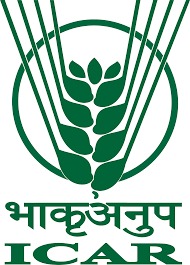
Dr. Anjitha George
Field of Specialisation :
Sr. Scientist
Dr. Anjitha George
-
Personal Information
-
Academic Qualifications
-
Professional Experience
-
Research Interests
-
Publications
-
Awards and Recognitions
-
Trainings
-
Other Contributions
Edit Content
1. Personal Information
| Details | |
|---|---|
| Name | Dr. (Mrs). Anjitha George |
| Designation | Senior Scientist |
| Discipline | Agricultural Entomology |
| Email ID | Anjitha.George@icar.org.in |
| Phone Number (Official) |
Edit Content
3. Area of Specialization
Insecticide resistance management and toxicological aspects,
Integrated Pest Management, Semiochemicals
2. Academic Qualifications
| Degree | Discipline | Institution | Year | Merits if any |
|---|---|---|---|---|
| B.Sc. | Agriculture | KAU, Thrissur | 2007 | Kau merit scholarship |
| M.Sc. | Agri.Entomology | TNAU, Coimbatore | 2010 | ICAR-JRF |
| Ph.D. | Agri.Entomology | TNAU, Coimbatore | 2015 | DST-INSPIRE fellowship |
| Others (if any) | ||||
Edit Content
| Designation | Organization | Duration | Post held |
|---|---|---|---|
| Scientist (On Probation) | NAARM, Hyderabad | 15.09.2011 – 22.12.2011 | Scientist |
| Scientist (RGP 6000 to 7000) | ICAR-CCRI, Nagpur | 22.12.2011 – 24.11.2015 | Scientist |
| Scientist (RGP 7000 to 8000) | ICAR-CCRI, Nagpur | 25.11.2015 – 24.11.2020 | Scientist (Sr. Scale) |
| Senior Scientist (RGP 8000 to 9000) | ICAR-IISS, Mau | 25.11.2020 to 24.11.2023 | Senior Scientist |
| Senior Scientist (RGP 9000 to 10000) | ICAR-NISST, Mau | 25.11.2023 till date | Senior Scientist |
Edit Content
5. Ongoing Projects (List):
- Improving seed health and storage system (Project Code: IXX16579):
- Integrated approaches for management of pulse beetle, Callosobruchus sp (Sub-project PI)
- Identification of QTLs/genes linked to storage seed pest in wheat (as Co-PI)
- Development of Desiccant Storage System (as Co-PI)
- Seed quality assessment and enhancement Technologies (Project Code: IXX15906):
- Sub-baric Priming of Cucurbit Seeds with Plant Growth Regulators (as Co-PI)
6. Research Accomplishments (5 best):
- Developed integrated module for the management of citrus leaf miner using sex pheromone lure, delta trap, and insecticide schedule for the flushing season in citrus.
- Documented mite species composition in Vidarbha region causing major damage and generated data on their seasonal incidence with respect to weather, cultivar, and mite species on three major commercial citrus cultivars — useful for insect pest forewarning.
- Generated data for registration of synthetic insecticide “Cyantraniliprole 10.26% w/w OD” (by E.I. Dupont Ltd.) with newer mode of action against major insect pests of citrus for use in citrus belts.
- Documented insecticide resistance levels in field populations of leaf miner from Nagpur mandarin and acid lime cultivars across three districts in Maharashtra — to serve as a benchmark for monitoring insecticide resistance and resurgence.
- Evaluated components of push-pull strategy involving botanicals/insecticides and intercrop for managing the fruit piercing moth.
Edit Content
| Research Papers in National /international Journals | 32 |
| Paper presented/ abstract published | 26 |
| Chapters in training manual / book chapters/books published | 14 |
| Technical Bulletin / Extension folder | 25 |
| Popular Articles | 17 |
| Documentary/any others like e-publication/vlogs | 2 |
Edit Content
| Awards by society | 3 |
| Best oral/poster award | 4 |
| Conference awards | – |
| Any other recognitions (Fellow/Fellowship/position in any society held) |
4 |
Edit Content
| Trainings attended (international/national) |
4 |
| Trainings conducted | 5 |
| Workshops attended/conducted | 3 |
Edit Content
9. Patent / Technologies / Methodologies / Systems etc.
(List of up to 5 under each category)
- New molecules / Chemical:Generated efficacy data for registration of Cyantraniliprole (new molecule) by E.I. Dupont for the management of citrus thrips and citrus leaf miner. Established the field dose of Cyantraniliprole 10.26% w/w OD @ 60 g a.i./ha-1 against thrips and leaf miner. This can be recommended for effective management of these insect pests of citrus below ETL.
- Integrated Pest Management Modules:Management of citrus mites using new acaricides. The application of Fenazaquin 10 EC @ 1 ml/l or Spiromesfen 240 SC @ 0.39 ml/l at 15-day intervals starting from 15 days after fruit initiation (two sprays during May–June or August–September) reduces mite damage on leaves and fruits and enhances the number of marketable fruits in citrus. Validated through AICRP(F) at 5 centers.
- Documentation:Documented major mites and their bioagents in citrus cultivars. Three species of phytophagous mites were recorded:
- Eutetranychus orientalis (Klein)
- Brevipalpus rugulosus Chaudhri, Akbar & Rasool
- Polyphagotarsonemus latus (Banks)
Additionally observed:
- Tetranychid mites: Schizotetranychus sp., Eotetranychus sp.
- Eriophyid mite: Phyllocoptruta oleivora (Ashmead)
Major bioagents:
- Mallada desjardinsi (Navas)
- Coccinellids: Stethorus sp., Parastethorus indira Kapur (= Stethorus indira Kapur)
- Dipteran midge: Feltiella sp.
- Staphylinid beetle: Oligota sp.
- Methodology:Standardized and popularized the mass multiplication technique of predator Mallada desjardinsi to control citrus blackfly. Field release of M. desjardinsi @ 30 larvae or 50 eggs per tree, twice each season, effectively checks insect pests like blackfly, whitefly, psylla, and leaf miner.
- Development of Organic Package for Nagpur Mandarin Cultivar:IPM Module I (T4): Foliar spray of Azadirachtin (1%) @ 4 ml/l followed by Lecanicillium lecanii @ 5 g/l and release of Mallada desjardinsi @ 50 eggs/tree at 10–15 day intervals.
IPM Module II: Foliar spray of Horticultural Mineral Oil @ 1% followed by Beauveria bassiana @ 5 g/l and Azadirachtin (1%) @ 4 ml/l.
These were implemented during flushing seasons with five treatments involving modules of nutrient, insect pest, and disease management.
Involved in front line demonstrations/exhibitions/training programs/Krishi melas/ of
various plant protection techniques w.r.t citrus insect pests management
Involved in breeder seed production program of the institute
Links of Google Scholar and ResearchGate (if available)
Google Scholar: https://scholar.google.co.in/citations?user=_X22KEcAAAAJ&hl=en
ResearchGate: https://www.researchgate.net/profile/Anjitha-George
ORCID id: https://orcid.org/0000-0002-9933-1672

